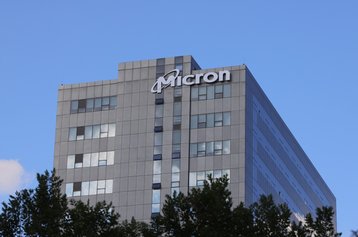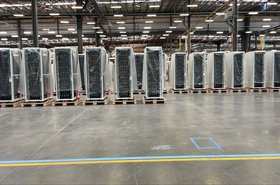Micron has told customers in the US it plans to impose a surcharge on some products as a result of President Donald Trump’s recently imposed tariffs.
Citing four sources familiar with the matter, Reuters reported that the memory chipmaker had told customers that whilst semiconductors are currently not subject to tariffs, a surcharge will be placed on memory modules and SSDs (solid-state drives) starting April 9.
The move is not wholly unexpected, with the company’s president and CEO Sanjay Mehrotra telling analysts on Micron’s Q2 2025 earnings call, “Where tariffs do have an impact, we intend to pass those costs along to our customers.”
President Trump announced his wide-ranging “liberation day” tariffs last week, with them coming into force over the weekend. A baseline tariff of 10 percent has now been placed on imported goods coming into the US, however, many countries - described by Trump as “the worst offenders” - are facing much higher tariffs.
Micron has a number of manufacturing sites in East Asia, including Taiwan, Japan, Malaysia, and Singapore. Under Trump’s newly introduced tariff regime, those countries are facing tariffs of 32 percent, 24 percent, 24 percent, and 10 percent, respectively.
The company also has a manufacturing base in China, a country that saw a 34 percent tariff placed on it over the weekend but has since been threatened with an additional 50 percent tariff by Trump after the country announced it would be imposing reciprocal tariffs on the US.
Under the Biden Administration, Micron was awarded $6.165 billion in direct funding under the CHIPS and Science Act to support the construction of three new memory chip fabs in Clay, New York, and Boise, Idaho. The company had pledged to invest approximately $100 billion in New York and $25 billion in Idaho, which will create approximately 20,000 jobs.
However, given Trump’s previous criticisms of the CHIPS Act, it's unclear whether the funding will ever be distributed. The President has instead argued that the government should levy tariffs on the semiconductor industry instead of handing out grants and loans to chip companies.
In January 2025, Trump pledged to “return production” of computer chips and semiconductors to the United States by imposing a “100 percent tax” on their overseas production, claiming that tariffs would incentivize companies to manufacture chips in the US instead of Taiwan.
Despite this, the President has yet to impose any tariffs on semiconductors.







